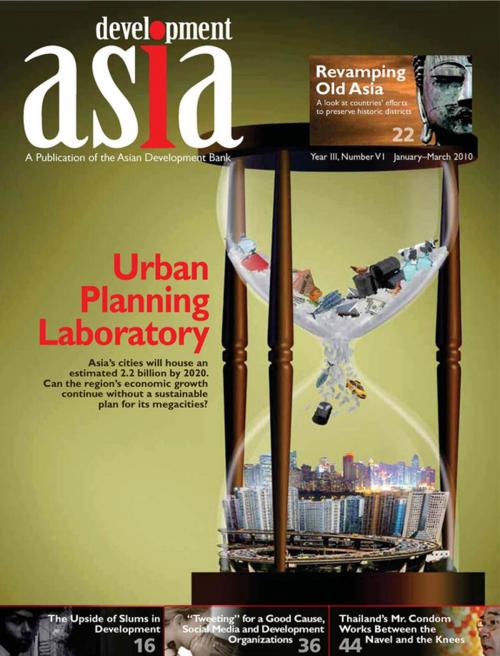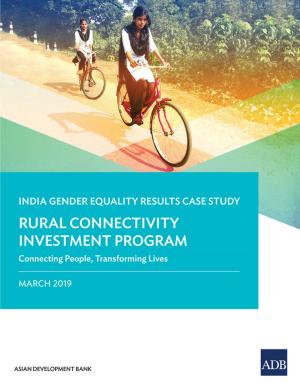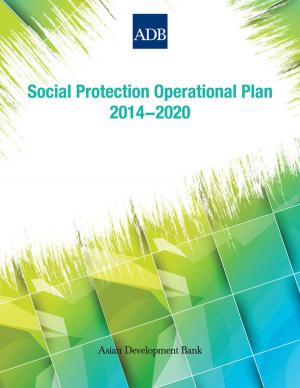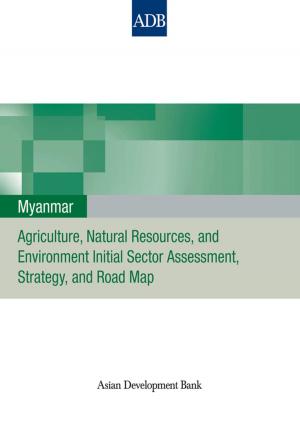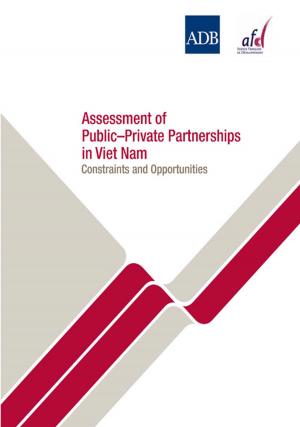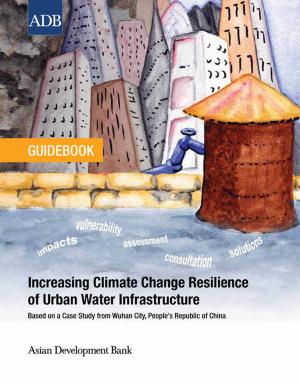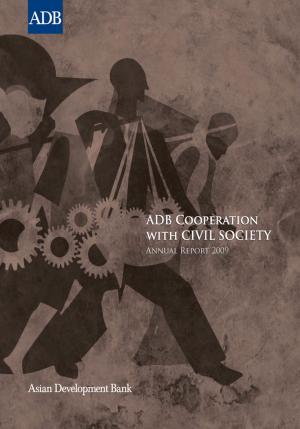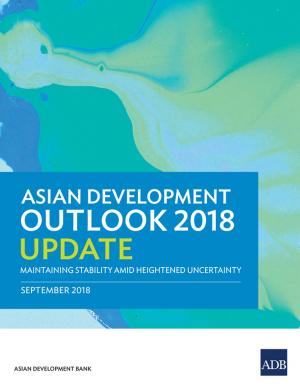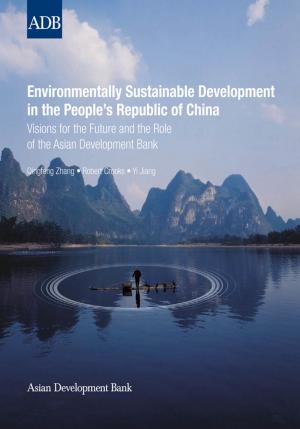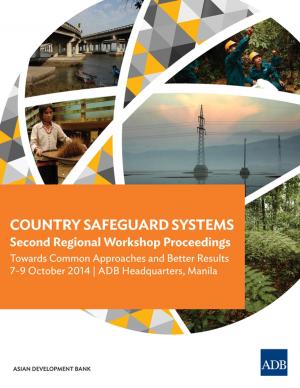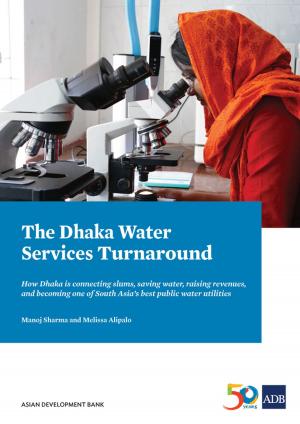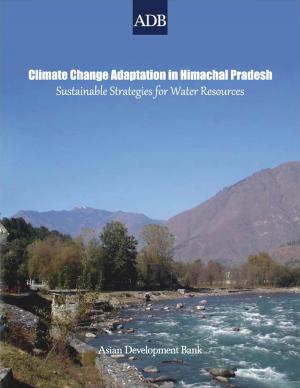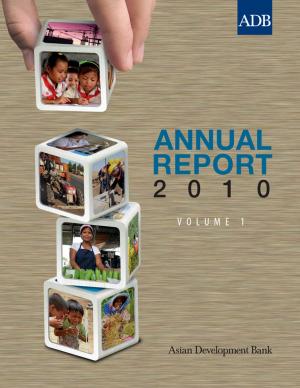Development Asia—Urban Planning Laboratory
January–March 2010
Nonfiction, Social & Cultural Studies, Political Science, Politics, City Planning & Urban Development, Social Services & Welfare| Author: | Asian Development Bank | ISBN: | 9789292574284 |
| Publisher: | Asian Development Bank | Publication: | March 1, 2010 |
| Imprint: | Asian Development Bank | Language: | English |
| Author: | Asian Development Bank |
| ISBN: | 9789292574284 |
| Publisher: | Asian Development Bank |
| Publication: | March 1, 2010 |
| Imprint: | Asian Development Bank |
| Language: | English |
The rise of Asia's megacities is the upshot of robust economic growth in the region. In turn, the expansion of these centers of industry and commerce is fueling further growth, opening more opportunities for business and employment. With six out of 10 of the world's largest cities in Asia—and eight out of 10 of the most densely populated—the continent will be the world's de facto laboratory for urban planning. Yet urbanization does not mean prosperity for all. A great disparity between the rich and the poor—not just in terms of income but also in living conditions—persists. Asia accounts for some 60% of the world's urban slum residents. Rapid development puts pressure on infrastructure and the delivery of basic services, such as health care, water and sanitation, and energy, particularly for cities with poor urban planning. Investments in public utilities must keep pace with business and population expansion. Otherwise, economic growth cannot be sustained. This edition of Development Asia examines the opportunities and challenges that urbanization presents: how it can drive or disrupt economic growth in Asia. It looks into the case of Viet Nam, one of Asia's economic stars, which is grappling with problems arising from massive urban migration. In The Cruel Utility of Slums, we weigh the economic value of informal settlements against the human toll. To round out coverage, this issue reports on the progress of urban renewal programs that seek to revitalize old cities while preserving their cultural heritage. In other stories, this issue explains the rollout of a form of political risk insurance that covers acts of terrorism. This issue also looks at how development organizations are adapting in a networked world. How well are these organizations using social media? And how are internet scammers posing as development organizations? Finally, this issue puts the spotlight on Thailand's Mr. Condom, Mechai Viravaidya.
The rise of Asia's megacities is the upshot of robust economic growth in the region. In turn, the expansion of these centers of industry and commerce is fueling further growth, opening more opportunities for business and employment. With six out of 10 of the world's largest cities in Asia—and eight out of 10 of the most densely populated—the continent will be the world's de facto laboratory for urban planning. Yet urbanization does not mean prosperity for all. A great disparity between the rich and the poor—not just in terms of income but also in living conditions—persists. Asia accounts for some 60% of the world's urban slum residents. Rapid development puts pressure on infrastructure and the delivery of basic services, such as health care, water and sanitation, and energy, particularly for cities with poor urban planning. Investments in public utilities must keep pace with business and population expansion. Otherwise, economic growth cannot be sustained. This edition of Development Asia examines the opportunities and challenges that urbanization presents: how it can drive or disrupt economic growth in Asia. It looks into the case of Viet Nam, one of Asia's economic stars, which is grappling with problems arising from massive urban migration. In The Cruel Utility of Slums, we weigh the economic value of informal settlements against the human toll. To round out coverage, this issue reports on the progress of urban renewal programs that seek to revitalize old cities while preserving their cultural heritage. In other stories, this issue explains the rollout of a form of political risk insurance that covers acts of terrorism. This issue also looks at how development organizations are adapting in a networked world. How well are these organizations using social media? And how are internet scammers posing as development organizations? Finally, this issue puts the spotlight on Thailand's Mr. Condom, Mechai Viravaidya.
